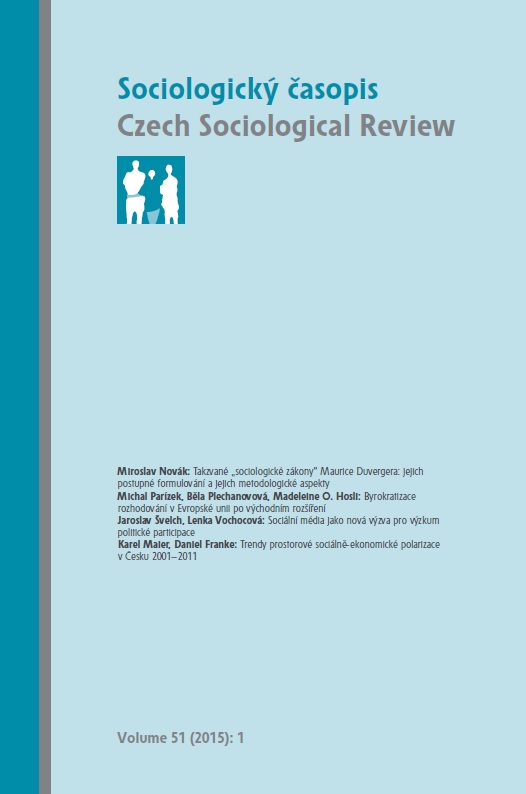Trendy prostorové sociálně-ekonomické polarizace v Česku 2001–2011
Trends in Spatial Socio-economic Polarisation in the Czech Republic 2001–2011
Author(s): Karel Maier, Daniel FrankeSubject(s): Social Sciences
Published by: AV ČR - Akademie věd České republiky - Sociologický ústav
Keywords: spatial convergence / divergence; spatial polarisation; metropolisation; territorial cohesion
Summary/Abstract: The economic transformation in the Czech Republic in the 1990s triggered a dramatic increase in economic disparities. In the 2000s a new spatial economic pattern established itself and the increased mobility of people into better jobs reinforced the preceding inequality in growth. This article reveals spatial changes based on an analysis of quantitative and qualitative data from the national censuses in 2001 and 2011. The correlations of data with particular types of regions and micro-regions are also presented, and several typical groups of micro-regions are identifi ed on the basis of analyses of changes in the population, education levels, demographic age, economic activity, and housing stock. The booming suburbia of Prague and Brno and their large hinterlands contrast with the decline of remote rural areas and regions with outdated industries such as mining, heavy industry and energy. The spatial economic disparities of the 1990s turned into spatial social polarisation, which will in turn lead to the further polarisation of regions in a future economy be based on knowledge and information. This increasing polarisation lends confirmation to theories that regional divergence is the prevailing trend in current and also future spatial change, the effects of which are contrary to the EU’s objectives of territorial cohesion.
Journal: Sociologický časopis / Czech Sociological Review
- Issue Year: 51/2015
- Issue No: 01
- Page Range: 89-124
- Page Count: 35
- Language: Czech

